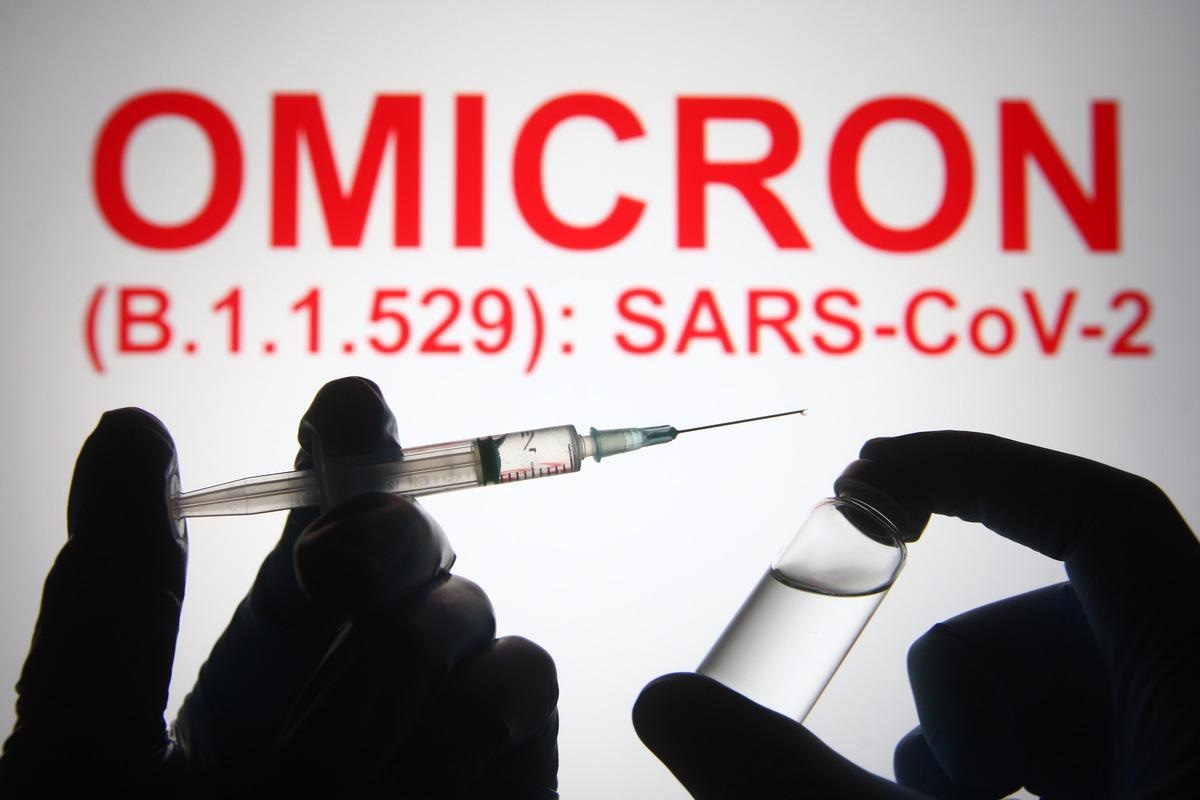Currently, the new Omicron or B.1.1.529 variant of the severe acute respiratory syndrome coronavirus 2 (SARS-CoV-2) is a global cause of concern due to its ability to escape immunity and vaccine protection and cause coronavirus disease 2019 (COVID-19).
A new study examines the variation in vaccine effectiveness against virus variants using estimated reductions in neutralizing antibody levels from published studies. The researchers investigated vaccine effectiveness against the omicron variant as well.
 Study: Estimates of reduced vaccine effectiveness against hospitalization, infection, transmission and symptomatic disease of a new SARS-CoV-2 variant, Omicron (B.1.1.529), using neutralizing antibody titers. Image Credit: viewimage/Shutterstock
Study: Estimates of reduced vaccine effectiveness against hospitalization, infection, transmission and symptomatic disease of a new SARS-CoV-2 variant, Omicron (B.1.1.529), using neutralizing antibody titers. Image Credit: viewimage/Shutterstock
A preprint version of the study, which is yet to undergo peer review, is available on the medRxiv* server.

 *Important notice: medRxiv publishes preliminary scientific reports that are not peer-reviewed and, therefore, should not be regarded as conclusive, guide clinical practice/health-related behavior, or treated as established information.
*Important notice: medRxiv publishes preliminary scientific reports that are not peer-reviewed and, therefore, should not be regarded as conclusive, guide clinical practice/health-related behavior, or treated as established information.
Background
The Omicron variant was reported in November 2021. SARS-CoV-2 evolves in populations with high immunity from infection or vaccination with the possibility of the emergence of new variants that can evade the immune system. It is essential to determine vaccine effectiveness to assess the extent of immune evasion.
Vaccine effectiveness refers to how well vaccines work in the real world. Neutralizing antibody levels are a surrogate of protection against SARS-CoV-2. Also, they can be measured quickly and yield fast results. Furthermore, variations in neutralizing antibody levels across vaccines are strongly correlated with protection against symptomatic disease, infection, and transmission.
Traditional vaccine effectiveness studies can be expensive. They can only be performed when there is significant transmission of a new variant in a partially vaccinated population. Due to these limitations, there can be delays in implementing interventions until these studies can be performed. This can result in the rapid growth of a new variant and stress on healthcare systems.
Estimating vaccine effectiveness
The authors collected data from a recent review on neutralizing antibody levels for four SARS-CoV-2 variants viz., Alpha, Beta, Gamma, and Delta, and for each vaccine. The neutralizing antibody levels were normalized by convalescent sera. The estimate of neutralizing antibody level for a variant was divided by the neutralizing antibody level for the wild-type SARS-CoV-2 to represent reduction as expressed by the fold difference. The wild-type SARS-CoV-2 is the original virus from Wuhan – Wuhan-Hu-1, US-WA1/2020, B, B.1.
The authors also calculated the mean differences among variants and a vaccine-variant-specific relative neutralizing antibody titer ratio (NATR).
The authors also collected data from the literature on vaccine effectiveness for COVID-19 and endpoint. Data were categorized by variant type (Alpha, Beta, Gamma, Delta) and endpoint (hospitalization, symptomatic disease, and documented infection). Statistical models were employed to estimate relationships between vaccine effectiveness and neutralizing antibody titers by vaccine and variant.
Waning vaccine effectiveness
There was a considerable variation in variant-specific neutralizing antibody levels between studies. However, within-study comparisons across variants were consistent.
There was insufficient data to estimate vaccine effectiveness against omicron based solely on comparisons within a vaccine across variants. The variation in vaccine effectiveness with NATR across both variants and vaccines showed strong relationships across a 30 to 110-fold range for the three endpoints.
There is a 40-fold reduction in neutralizing antibody levels against Omicron. Omicron increased the risk of hospitalization four to five-fold and increased the risk of symptomatic disease seven to ten-fold for individuals vaccinated with mRNA vaccines. The relative effects were similar for individuals recently vaccinated or with waned antibody titers.
Vaccine effectiveness was 96.3% against Delta for recently Pfizer vaccine vaccinated recipients but was 84.9% against Omicron. Waned vaccine effectiveness was 88.8% for Delta but was 63.1% for Omicron.
The third vaccine dose restored neutralizing antibody levels and protection. It increased vaccine effectiveness to 91.7% for Omicron. However, this was similar to waned immunity against Delta.
Relative patterns were similar for Moderna vaccine recipients. Vaccine effectiveness was a bit higher than Pfizer vaccine for recently vaccinated and waned, although the third dose was less effective.
Limitations
Neutralizing antibody levels are a surrogate for vaccine effectiveness and may not reflect the full extent of immune evasion by the new variants. The extent of Omicron immune evasion is high when compared to previous variants. Since the vaccine effectiveness estimates for the next most evasive variant, Beta, were uncertain, it was difficult to estimate vaccine-specific models to estimate vaccine effectiveness for Omicron. The 40-fold reduction that was estimated for Omicron required extrapolation well outside of available data. This makes it difficult to calculate reliable vaccine effectiveness estimates for Omicron for vaccine recipients with waned immunity.
Conclusion
Vaccine effectiveness against severe disease is significantly diminished for waned individuals. Also, protection against infection, symptomatic disease and transmission is nearly eliminated. However, third doses significantly elevate immune levels but only restore protection to levels equivalent to waned protection against Delta. Omicron is likely to result in widespread infection and substantial hospitalizations unless widespread boosting of immunity occurs.

 *Important notice: medRxiv publishes preliminary scientific reports that are not peer-reviewed and, therefore, should not be regarded as conclusive, guide clinical practice/health-related behavior, or treated as established information.
*Important notice: medRxiv publishes preliminary scientific reports that are not peer-reviewed and, therefore, should not be regarded as conclusive, guide clinical practice/health-related behavior, or treated as established information.